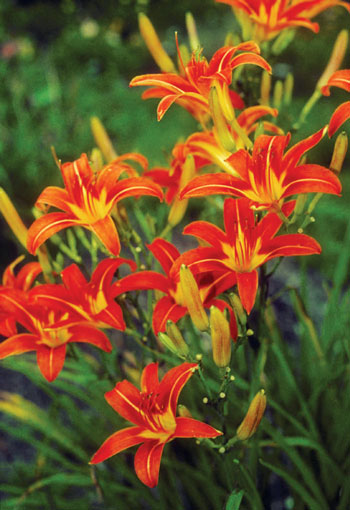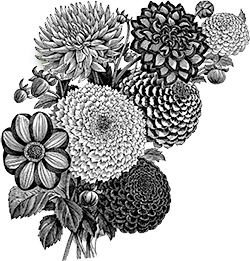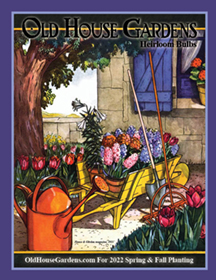And why should we have historic daylily gardens?
In an excellent article for the American Hemerocallis Society, Linda Sue Barnes offers several answers to those two questions, most of which also apply to the even bigger questions: What good is any historic flower? And why should we grow them today?

1. “Many historic daylilies have beautiful flowers. Many ... are stars or trumpets, and ... the simplicity of those flowers can provide a break from all the ruffles, fancy edges, and patterns of the modern daylily.”
2. “Many historic daylilies have spectacular garden habit,” such as ‘Autumn Minaret’ (1951) which “can easily reach 6 feet with as many as 80 blooms on a scape.”
3. “Logically enough, most of the early cultivars that are still in gardens today multiply well and are very hardy.”
4. “Historic daylilies ... extend the garden season.” In her North Carolina garden, Linda Sue has historic varieties blooming from early April – “a month before more modern cultivars begin” – well into September.
5. “Historic daylilies ... win flower shows.” Linda Sue says four 1950s classics have “won Best in Show in our region in the last few years” and “many more have won Best in Section.”

6. “Historic daylilies .... can, even today, be good parents.” Breeders such as Brian Mahieu are using them to create new daylilies with “vigor, clear colors, a lot of unusual forms, and fragrance.”
For photos of 16 historic daylilies and Linda Sue’s reasons for having historic daylily gardens, see the entire article at our website. There you’ll also find a link to the AHS website where 20 historic daylily gardens, each with 50-100 historic varieties, are listed by region.
To see just how good historic daylilies can be, why not grow a few yourself? We’re offering 14 for April delivery including fragrant lemon lily, spring-blooming ‘Gold Dust’, and 4-6 foot tall ‘Challenger’ – all of which Linda Sue would tell you are great garden plants.












